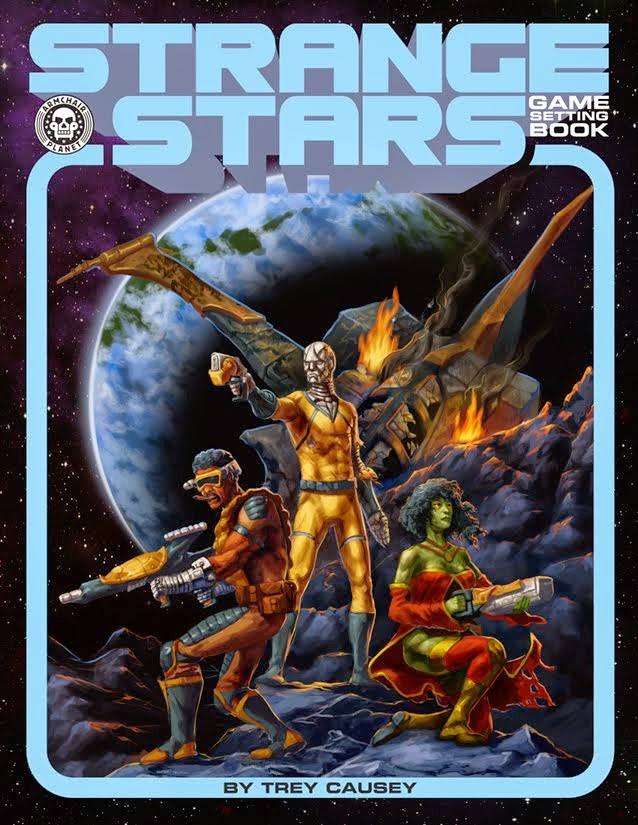 |
| French Talislanta art |
Tamerlin's account tells us they are "a nomadic race of indistinct origin," and they are of "slender proportions" and have "skin the color of rich topaz, dark eyes and jet black hair." (Again with the topaz skin! I suspect their origins to be Phaedran, then whatever the mystery.) They tend to dress in a gaudy, ostentatious, or seductive way (their clothing sounds theatrical, to me), and they are known as "folk healers, fortune tellers and performers--or as mountebanks, charlatans, and tricksters."
These things are stable across all editions of Talislanta, with only minor differences in the text. Sarista have the distinction of having had a supplement devoted to them in the third edition, and are also otherwise fleshed out in the deuterocanonical Cyclopedia Volume IV. That work reveals the Sarista to be the descendants of criminals, witches, and various nonconformists that fled Phaedra when the Orthodixists took over. It also suggests that Saristan fools are called Rodinns after the ancient wizard.
"Let them scoff as they see fit! I will never compromise what I consider my art, especially for the sake of gain!"
"For the sake of gain I’d compromise the art of my grandmother,” muttered Zamp under his breath.
- Jack Vance, Showboat World
I think I would de-emphasize the "gypsy" aspect of the Sarista, and certainly dispense with distasteful stereotypes like child-stealing, to portray them as perhaps less an ethnicity and more a vocation or society. The texts mention that the Silvanus Wood isn't conquered by the Aamanians because its the kind of playground/preserve of the nobility of Zandu. Sarista are part theater troupe, part carny. They make their living traveling the forest circuit performing for their mostly Zandu visitors, and fleecing the rubes as they can. Sure, some may be outright thieves, but not near so many as the texts suggest--that's just prejudicial slander.




3 comments:
It would be interesting to have a faction of wandering theater-companies. Roll the right encounter on the wandering monster table, and their wagon pulls up to your camp where they put on a show for you.
I think the tradition is for plays-within-plays (and plays-within-books, etc) to be loaded with meaning and symbolism, so presumably this is a veiled or coded source of rumors and/or setting lore.
There are wandering performers in "Lord Valentine's Castle" aren't there?
There were!
I haven't played Talislanta in thirty years... I am amazed that it is still around. Even back then it seemed like a one off sort of book that the hobby shops were full of.
On the topic at hand, you could approach the "child stealing" from a couple of different directions to keep it, but de-emphasize the stereotype it is being drawn from.
For example, every kid wants to run away and join the circus. The slander could be used as a parent's cautionary tale to stop their children thinking such things. It could also have derived from some performance that is so standard with the traveling companies that it has come to be identified with them.
I would also think about keeping the ethnicity aspect as the origin, but no longer the rule. So that they slowly evolved from a clan to a society. There could be a center nucleus of 'original' pure Sarista. If not that, then the amount of pure Sarista blood could be an important aspect of their personal reputation, as outsiders entered the mix.
What seems to be missing is why they are nomads. Nomads nomad for a reason; persecution, weather, etc. What that reason is needs to be a core value of the society or else they stop making sense.
If they travel because they are carnies, then they still need to have some sort of home base. Carnies get off the road when the weather turns or the circuit needs time to recover resources. So 'off-season' they still have a home of sorts.
What might be interesting is if the various troupes disband during off season. Dispersing out into 'normal' society until it is time to travel again. Re-grouping just before the start of season to form new troupes.
Post a Comment